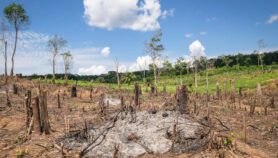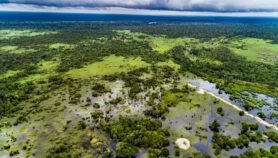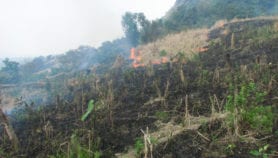31/08/06
Climate change debates ‘need ethical dimension’
By: Marina Ramalho
Send to a friend
The details you provide on this page will not be used to send unsolicited email, and will not be sold to a 3rd party. See privacy policy.
[RIO DE JANEIRO] Debates on climate change policy focus too much on science and economics and ignore important ethical issues, according to delegates at an international conference in Brazil.
The 30-31 August meeting is being co-sponsored by the Ethical Dimensions of Climate Change programme at Penn State University’s Rock Ethics Institute, United States.
Don Brown, the programme’s coordinator, said people worldwide must recognise the ethical aspects of climate change so they can urge governments to adopt equitable policies.
He said the United States has used scientific uncertainty about climate change to justify its policy of not reducing greenhouse gas emissions, and that economic arguments are also used as excuses for inaction.
But these approaches obscure major ethical issues such as the fact that many of those who will be worst affected by climate change have contributed little to the problem, said Brown.
He added that climate change could affect basic human rights to life and personal security by harming health, agriculture and water supplies.
The Ethical Dimensions of Climate Change programme and its partners — the International Virtual Institute on Climate Change, the Brazilian Forum on Climate Change and the Federal University of Rio de Janeiro’s energy planning programme — convened the meeting to seek advice from climate change experts from developing countries.
They will use this input to develop a policy paper on the ethical dimensions of climate change. It will be released at the next conference of parties to the UN Framework Convention on Climate Change in Nairobi, Kenya in November.
Luiz Pinguelli Rosa, coordinator of the International Virtual Institute of Global Change, says Brazil has much to contribute to the paper.
He points out that Brazil promotes the use of cleaner alternatives to fossil fuels such as alcohol to power vehicles but that deforestation in Brazil releases large amounts of greenhouse gases.
He says Brazil’s profound social inequality raises ethical questions about tackling climate change because, as a developing nation, Brazil is not required to cut its greenhouse gas emissions under the UN Framework Convention on Climate Change’s Kyoto Protocol.
"But around ten per cent of our population emits gases to the same extent Europeans do," he told SciDev.Net. "This is a question of ethics."













